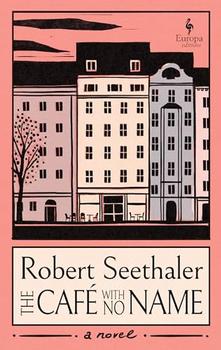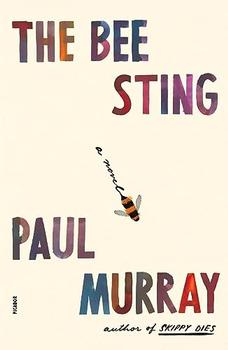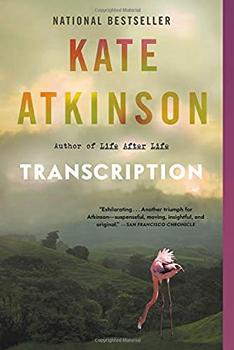Summary | Excerpt | Reviews | Beyond the book | Read-Alikes | Genres & Themes | Author Bio

In Vienna, as in many other cities in Europe, the Second World War did not truly end in 1945, but continued to sink its icy talons deep into a society still traumatized many years after its official close. So many lives were forever changed by its losses, casting a pall over an entire generation, the inevitable inheritors of wartime's collateral damage.
Robert Seethaler's novel The Café with No Name, published by Europa in translation by Katy Derbyshire from the original German, is set in Vienna twenty-one years after the war has ended, though the specter of war still blows across a melancholy cityscape. The novel opens in late summer 1966, at a turning point in our protagonist's life: Robert Simon realizes a long-cherished dream when he receives the keys to the small café that he will run for the next ten years. The café, which is never given a name, is located at the edge of the bustling Carmelite market in a modest neighborhood, and it will serve as a quiet witness to the local residents and market workers, themselves often nameless, as they pass through, sometimes seeking only a moment of refuge, sometimes leaving their mark in a more indelible way, and sometimes finding a place in which their lives and their stories can be safely shared. For what is a city but a collection of human stories?
Robert, thirty-two when he takes over the café, has little memory of his childhood before the war, in which he lost both of his parents and was moved to a home for war orphans run by the Sisters of Mercy. Since leaving school at the age of fifteen, Robert has done a variety of manual labor jobs, early on "joining a squad of emaciated men" participating in the rebuilding of the shattered city by erecting walls, shoveling rubble and earth into bomb craters, and hammering iron from the ruins of the destroyed train station, and later working for the various vendors at a small public market. Over the years, as he has watched his city slowly recover and begin to flourish once again, he has nurtured his own wildly improbable dream: to one day stand behind the bar of his very own establishment.
Seethaler is a thoughtful chronicler of the small world within a world, the simple, the humble, and the modest. The relationships between his characters provide pockets of warmth in an indifferent city, as lonely people find ways of coming together in Robert's café. But this is no postwar utopia; these characters are flawed and deeply human, with bursts of kindness and generosity but also flashes of insensitivity and casual cruelty. We meet Robert's war widow landlady; the market butcher and his growing family; the young country girl Mila who becomes an essential worker at the café and the wrestler whom she loves; the painter with the roving gaze and the cheese shop owner who puts up with his infidelities. Slowly a full cast of characters emerges, and the once nameless coalesce into a community. People fall in love, people die, there are accidents and fights, illness and births. The reader cannot help but grow deeply attached to this humble café and all its denizens.
Seethaler is at his best when he evokes the minute details of life in the city. His language is precise and expressive. Here he is describing Robert's fading memories of his childhood home and parents: "What remained was his memory of a heavy coat and a kitchen-scented apron and the blurred image of a staircase steeped in yellow light, a pair of spectacles with finely scratched lenses folded on the top step." Throughout the novel, the characters' hardships and unexpected sorrows are never far behind, but there is also a sense of energy and life as the city changes and grows and memories of the long war finally begin to fade.
![]() This review
first ran in the February 26, 2025
issue of BookBrowse Recommends.
This review
first ran in the February 26, 2025
issue of BookBrowse Recommends.

If you liked The Café with No Name, try these:

by Paul Murray
Published 2024
From the author of Skippy Dies comes Paul Murray's The Bee Sting, an irresistibly funny, wise, and thought-provoking tour de force about family, fortune, and the struggle to be a good person when the world is falling apart.

by Kate Atkinson
Published 2019
A dramatic story of WWII espionage, betrayal, and loyalty, by the #1 bestselling author of Life After Life.
Every good journalist has a novel in him - which is an excellent place for it.
Click Here to find out who said this, as well as discovering other famous literary quotes!
Your guide toexceptional books
BookBrowse seeks out and recommends the best in contemporary fiction and nonfiction—books that not only engage and entertain but also deepen our understanding of ourselves and the world around us.